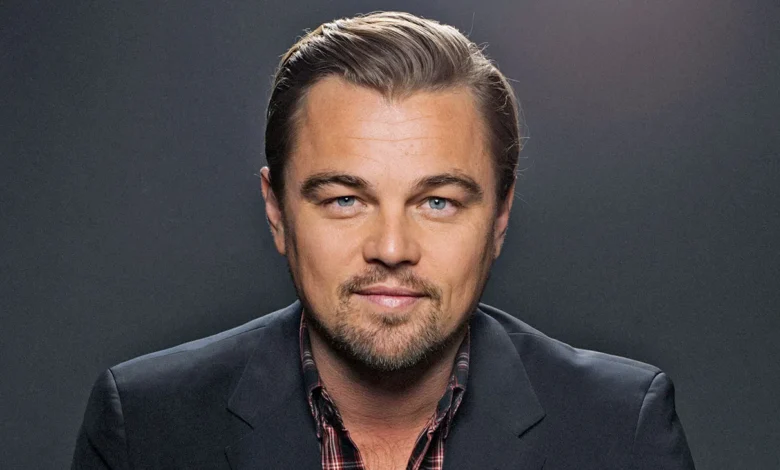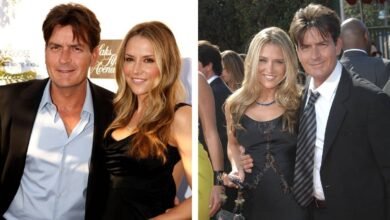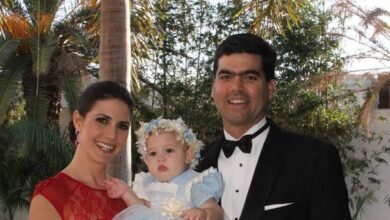The Unstoppable Journey of Leonardo DiCaprio

Few names in modern cinema command the same awe and admiration as Leonardo DiCaprio. From his early days as a child actor to becoming one of Hollywood’s most respected and socially conscious stars, his story is a fascinating blend of talent, persistence, and purpose. With each role, he reinvents himself, creating characters that linger long after the credits roll. But beyond the screen, his journey reflects something much greater—a man determined to make a difference in both art and the world.
The Early Years: From Humble Beginnings to Hollywood Hope
Born in Los Angeles, California, in 1974, Leonardo Wilhelm DiCaprio’s story begins far from the glamour of the Hollywood Hills. Raised by his mother, Irmelin, a German-born legal secretary, and influenced by his father, George DiCaprio, a comic book artist and distributor, young Leonardo was surrounded by creativity and culture from the start.
Despite his parents’ separation when he was still an infant, his upbringing was filled with love and inspiration. His mother worked tirelessly, often juggling multiple jobs, but she never failed to nurture her son’s artistic curiosity. It was Irmelin who encouraged his early fascination with performance—whether it was mimicking characters or performing short skits at home.
Growing up in the rough neighborhoods of East Los Angeles, he saw firsthand the harsh realities of urban life—poverty, crime, and inequality. Those early experiences shaped his empathy and drive, qualities that later became central to both his career choices and activism.
The Road to Acting
Leonardo’s passion for performance blossomed early. He began auditioning for commercials and television roles as a child. His first real exposure came through educational shows and small television appearances. Yet, it wasn’t long before casting directors noticed his natural charisma and emotional depth.
In 1991, he landed his first significant TV role in Growing Pains, which earned him attention for his youthful charm and expressive acting. But even then, Leonardo aimed for something deeper—he didn’t want to be a typical teenage heartthrob. He wanted roles that challenged him, that told human stories with raw emotion.
Rising to Stardom: The Breakthrough Years
By the early 1990s, Leonardo’s career trajectory had shifted from television to film, and his choices reflected both ambition and maturity.
A Star Is Born
His breakout performance came in What’s Eating Gilbert Grape (1993), where he portrayed Arnie, a mentally disabled boy. The role earned him his first Academy Award nomination for Best Supporting Actor—an extraordinary feat for a 19-year-old. Critics and audiences were stunned by his authenticity and emotional intelligence.
From that moment, Hollywood knew it had discovered a rare gem. But what followed would redefine fame itself.
Titanic and the Global Phenomenon
In 1997, Leonardo starred in James Cameron’s Titanic, one of the most successful films ever made. As Jack Dawson, a free-spirited artist who falls in love aboard the doomed ocean liner, he captured the hearts of millions worldwide. The film wasn’t just a box-office sensation; it turned Leonardo into a global superstar overnight.
Fans screamed his name wherever he went. His face adorned magazines, posters, and television screens across the globe. Yet, amid the whirlwind of fame, Leonardo stayed grounded. He didn’t rush into typical blockbuster roles; instead, he sought stories that mattered. He was not interested in being just a heartthrob—he wanted to be an artist.
Leonardo DiCaprio: The Actor Who Redefined His Generation
After Titanic, many expected Leonardo to continue down the path of romantic leads. Instead, he made a daring turn, choosing complex, gritty roles that challenged his audience’s perception of him.
The Collaborations with Martin Scorsese
One of the most defining aspects of his career has been his partnership with legendary director Martin Scorsese. Their collaboration began with Gangs of New York (2002), a brutal historical drama that showcased Leonardo’s growing intensity as an actor. It was the start of a creative relationship that would yield cinematic masterpieces.
In The Aviator (2004), he portrayed billionaire and aviation pioneer Howard Hughes, diving deep into the psyche of a man consumed by genius and madness. The role earned him another Oscar nomination and cemented his reputation as a serious actor.
Later came The Departed (2006), Shutter Island (2010), and The Wolf of Wall Street (2013)—each film a study in ambition, greed, and moral complexity. Together, these projects showcased his range, from vulnerability to ferocity, and his unparalleled ability to embody the contradictions of the human condition.
A Versatile Artist
Whether playing a ruthless stockbroker, a haunted dream thief, or a frontiersman struggling for survival, Leonardo’s commitment to authenticity never wavers. He’s known for immersing himself completely into every role—often enduring harsh physical and emotional challenges to bring his characters to life.
His performance in The Revenant (2015) epitomized that dedication. Filmed in freezing conditions, he pushed his body to the limit, enduring brutal weather and physical hardship. The result was breathtaking—a portrayal so visceral that it finally earned him his long-overdue Academy Award for Best Actor.
Beyond the Spotlight: The Man, the Mission, the Mind
While Leonardo DiCaprio’s acting career is remarkable, his life off-screen is equally inspiring. He is not merely an entertainer; he is a passionate environmentalist, humanitarian, and global citizen.
The Environmental Advocate
For decades, Leonardo has been one of the most prominent voices in environmental activism. Long before “sustainability” became a buzzword, he was advocating for the planet. He established the Leonardo DiCaprio Foundation in 1998, dedicated to protecting endangered species, promoting renewable energy, and combating climate change.
He has spoken at the United Nations, produced documentaries such as Before the Flood, and met with global leaders to promote climate action. His advocacy is not performative—it’s personal. The urgency in his voice when he speaks about the planet mirrors the passion he brings to his acting.
The Humanitarian Efforts
Beyond environmentalism, Leonardo has supported a range of humanitarian causes—from disaster relief to indigenous rights. His philanthropic efforts reflect a belief that fame carries responsibility. For him, success is not measured solely by awards but by impact—the ability to use his influence for meaningful change.
The Legacy of a Reluctant Celebrity
Despite his fame, Leonardo has always maintained a level of privacy that feels almost old-fashioned in today’s world of overexposure. He rarely discusses his personal life publicly, preferring to let his work and actions speak for him.
A Career Built on Integrity
Throughout his journey, Leonardo has refused to compromise his values for popularity. His career choices—driven by storytelling, substance, and artistic growth—set a new standard for actors seeking longevity rather than fleeting fame.
He has worked with some of the greatest filmmakers in history, from Steven Spielberg and Quentin Tarantino to Christopher Nolan. Each collaboration added another layer to his artistry, proving that his success is not luck—it’s relentless dedication.
Influence on a Generation
Leonardo’s influence extends beyond Hollywood. He has become a cultural symbol—a representation of what it means to balance talent with conscience. Younger actors cite him as a role model, not only for his performances but for his principles. He’s living proof that artistry and activism can coexist harmoniously.
The Continuing Evolution of Leonardo DiCaprio
Even after more than three decades in the industry, Leonardo continues to evolve. His recent projects, including Once Upon a Time in Hollywood and Don’t Look Up, show his adaptability and willingness to tackle contemporary issues with both humor and depth.
At an age when many stars fade into nostalgia, Leonardo remains relevant, respected, and relentlessly curious. He chooses projects that challenge him, that ask questions about the world we live in. Whether portraying a fading actor or a scientist desperate to save humanity, his performances carry an authenticity that resonates deeply with audiences.
The Power of Purpose
What makes Leonardo’s story so compelling is not just his fame—it’s his purpose. He is an artist who believes in something larger than himself. He uses his platform to shine light on issues that truly matter. In doing so, he has elevated the role of the actor from entertainer to educator, from performer to advocate.
His life reminds us that greatness doesn’t come from chasing applause; it comes from aligning passion with purpose, talent with truth.
Final Thoughts
In a world obsessed with instant fame, Leonardo DiCaprio stands as a testament to endurance, integrity, and evolution. His journey—from a curious boy in Los Angeles to one of the most respected figures in global cinema—illustrates what it means to stay true to one’s craft and conscience.
Every role he plays, every cause he supports, every speech he gives carries a message: that art can move the world, and empathy can change it.
As time passes, new actors will rise, new stars will shine—but few will embody the rare balance of artistry and advocacy that defines him. Leonardo DiCaprio is more than a movie star. He is a storyteller, a dreamer, and a relentless believer in the power of humanity.





